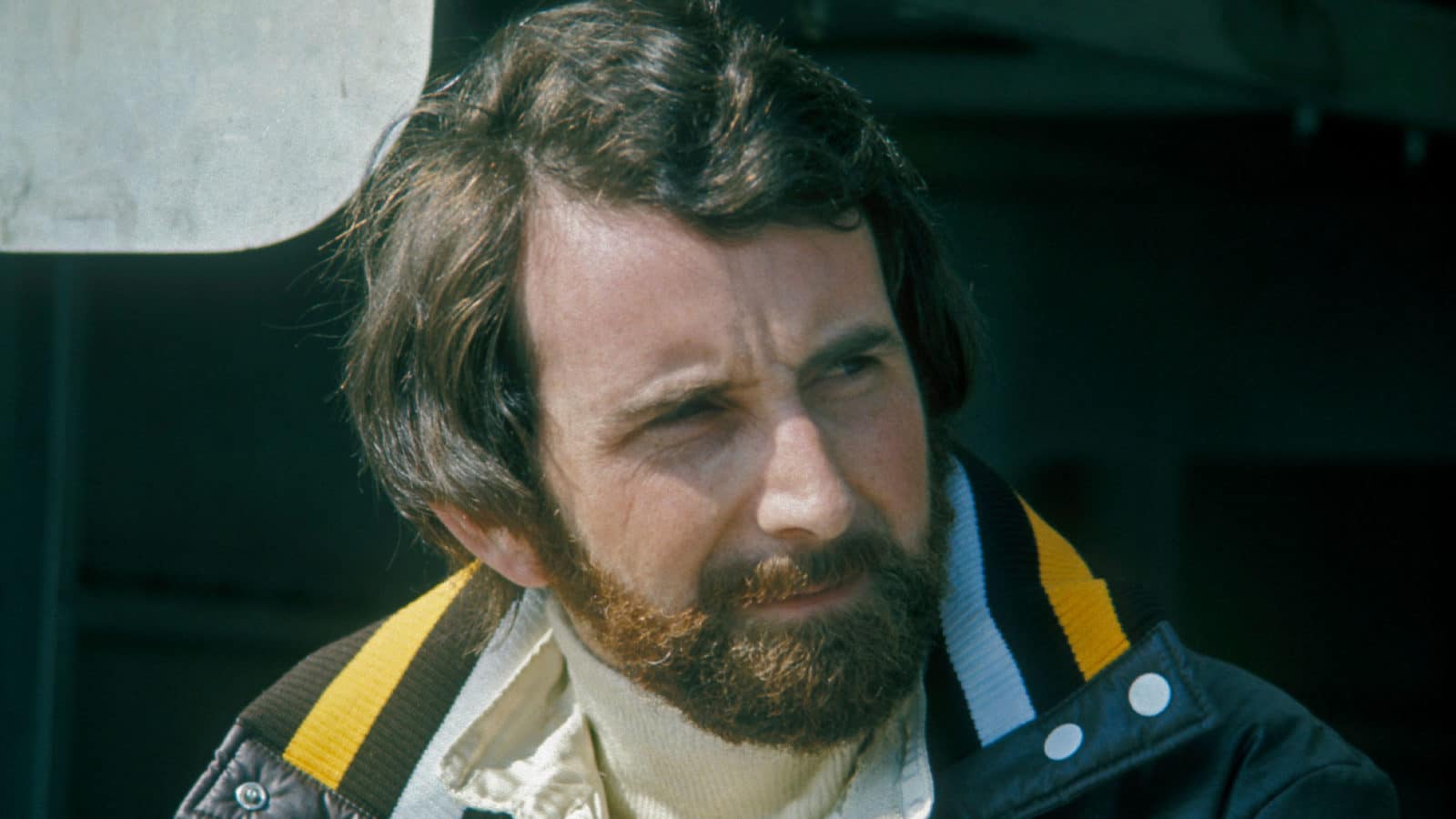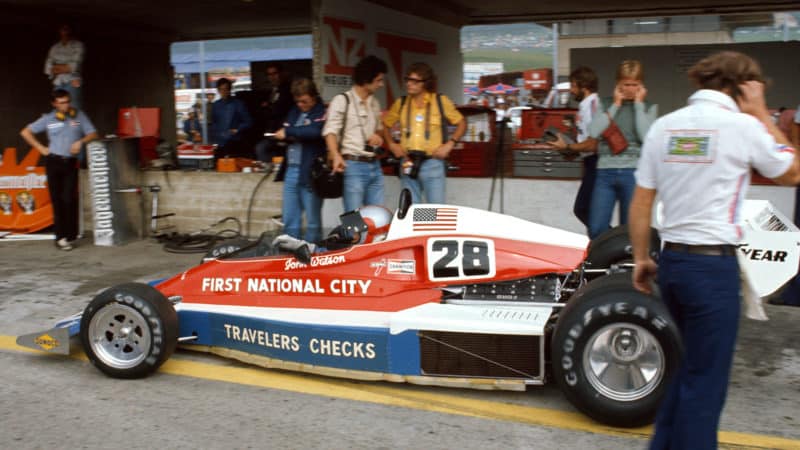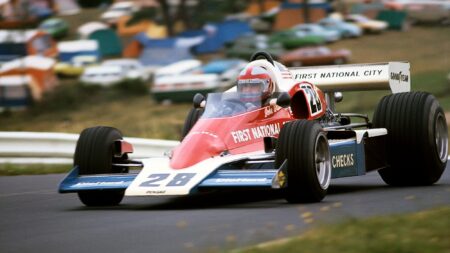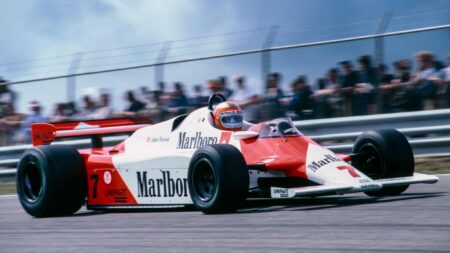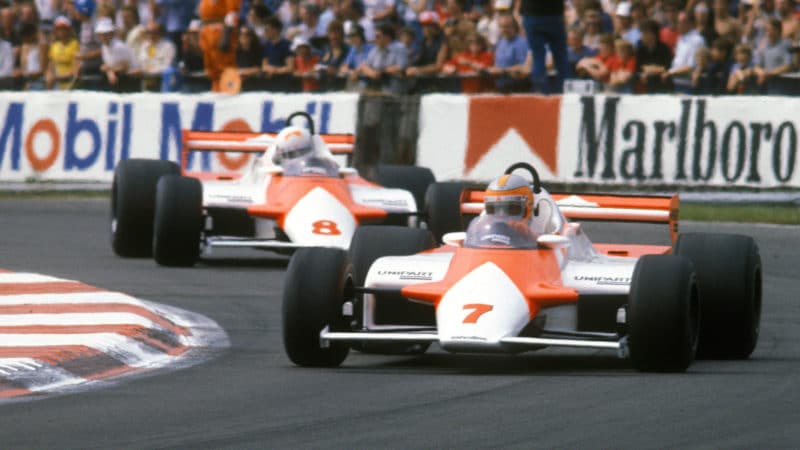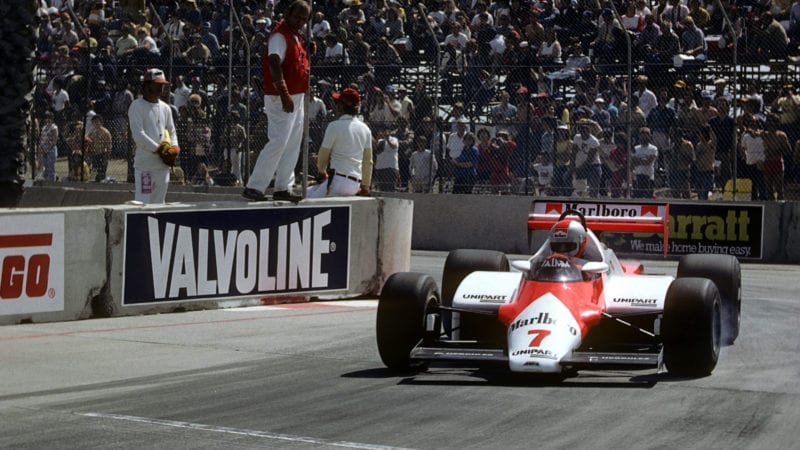“I can’t think of anything nicer than sitting here on a summer day,” he smiles, “just the sea, the sky and the fresh air. Maybe I’ll read up on the latest dramas in Formula 1, listen to some cricket on Radio 5 and generally chill out. Perfect. There’s just nothing better than just sitting and watching the tide come in and go out. And it’s great whatever the weather.” There’s something of the poet, of the Van Morrison, within this thoughtful Irishman. “Yes, my Irish roots mean a lot to me, “he says, “and I love Van’s song about his journey to Coney Island on the coast south of Belfast. So passionate, so emotional, and a song about the Irish landscape.” So, yes, there is a sense that Mr Watson has found his place in the world, snuggled into a cockpit from which he may watch his later years unfold before him.
In his grand prix career Watson was known for his attention to detail, his obsession with set-up and his desire for everything to be perfect. He applies the same analysis to his beloved fishing and is certainly dressed for the part. Khaki combats, Timberland boots and one of those fishing jackets covered in pockets and zips and things. On the lapel he wears a tasteful porcelain fish given to him by Brawn.
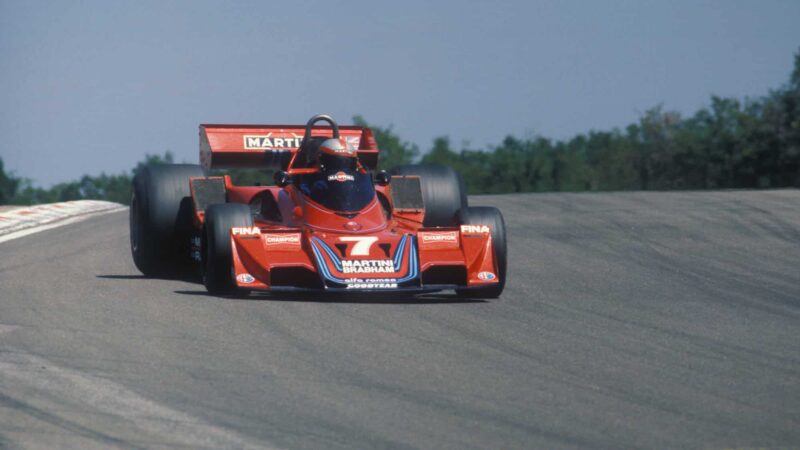
Last-lap disaster at Dijon in ’77 required some philosophical thinking from Watson
Grand Prix Photo
“It’s my nature. I need to know as much as I can, about the equipment and about the best way to fish in any particular circumstance,” he muses, “and in my racing, when I first broke into F1, I drove the cars for what they were, just got in and raced. But as you get older and gain confidence, you want the details to be right.
“I mean, the seat and the pedals were always important to me, having them exactly right, especially the brake pedal. Little things like that are important and you can get too fussy about it. I was maybe pernickety about things like the position and angle of the brake pedal, but then I’m like that with my hi-fi and my wine. When I’m passionate about something I like to get it right, have the best possible kit.”
Many racing drivers move from the fast lane into the slow lane, but this is not a quick decision, it is a gradual change of lifestyle. Racing at the highest level leaves little time for contemplation. There’s always a plane to catch or a briefing to attend, and yet mind management is a vital part of success in sport and a fisherman learns to calm his mind, rid himself of hurried thoughts and be patient in his quest.
